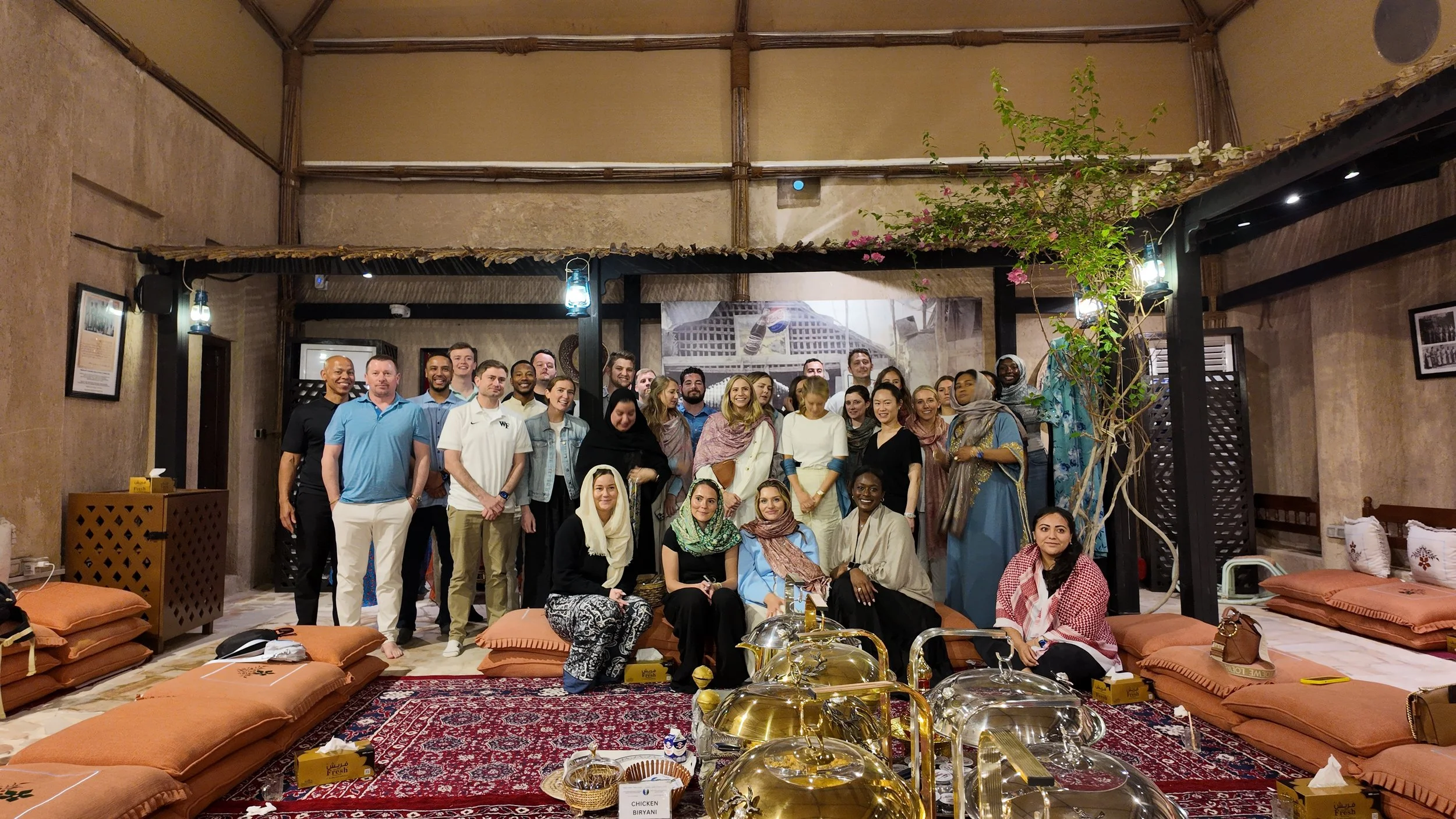
Do’s and Don'ts
for Visiting Islamic Countries
Get our travel tips for these destinations, including how to act and what to wear.
Dressing Etiquette
Modest clothing standards reflect traditional Islamic values, so it’s important to dress respectfully by avoiding revealing outfits, for both men and women. In public or areas with strong local presence, loose-fitting clothing that covers shoulders, arms, and knees is highly recommended. In tourist hubs (like hotels, resorts and major cities), dress codes may be more relaxed — but modesty is still encouraged. These standards generally don’t apply to young children.
Preferable Dressing Conduct:
While female tourists are not required to cover their heads at all times, it’s strongly recommended to carry a scarf or shawl, especially when entering mosques or religious shrines. In Saudi Arabia and more conservative parts of the Gulf, women are expected to dress more modestly than in places like Turkey or Indonesia.
Dresses, skirts and shorts are generally acceptable in more liberal countries like Turkey, Morocco and Indonesia as long as they reach or come close to the knees and are not tight-fitting. In conservative countries like the UAE, Saudi Arabia and Oman, women are expected to wear loose clothing that covers the arms and legs fully.
Bikinis and other swimwear are typically permitted at hotel pools and designated beaches, but wearing them outside these areas, such as in hotel lobbies, restaurants or public streets is considered inappropriate.
What Men and Women Should Avoid in Public:
Low-cut tops or midriff-baring crop tops
Shorts significantly above the knee
Sleeveless shirts (especially in religious or heritage sites)
Sheer, tight or revealing fabrics
Clothing with offensive symbols, language or imagery
Nudity in any form is strictly prohibited and may lead to legal consequences
Casual Dress for strolling around the city, going to cultural events, sightseeing, etc.
Business Casual for academic events and company visits. When in doubt, dress modestly for these settings.
When visiting places of religious practice during Ramadan, women should wear a headscarf.
Greeting Etiquette
In formal settings, the common Arabic greeting is “As-Salam Alaykum”, meaning peace be upon you. The correct response is “Wa’alaykum As-Salam”, and upon you be peace.
A light handshake is customary when meeting someone for the first time, though in Islamic cultures, physical greetings between men and women are only appropriate if the woman initiates it. If in doubt, a nod or placing a hand over your chest as a greeting is a respectful alternative.
In informal settings, men often greet each other with a kiss on each cheek or with an embrace. These forms of greeting are shared only between men or only between women, never between opposite genders, unless they are close family.
In Southeast Asia (such as Malaysia and Indonesia), a small bow with palms pressed together may also be used, especially when greeting women or elders.
General Social Etiquette
Respectful behavior and good manners are essential in all Islamic countries. Here are some general tips for polite conduct:
Rude Behaviors:
Swearing in public is unacceptable and can result in fines or arrest. Avoid rude hand gestures, shouting or aggressive behavior, even in traffic or crowded spaces.
Right Hand Usage:
Use your right hand for eating, offering or accepting money, giving gifts or shaking hands. The left hand is traditionally seen as unclean and should not be used for these purposes.
Drinking Alcohol:
In countries like the UAE and Turkey, alcohol is available at licensed venues for those of legal age. However, public intoxication or disorderly conduct is punishable by law. In countries such as Saudi Arabia and some parts of India, alcohol may be restricted or prohibited. Always research local laws in advance.
Littering:
Always dispose of waste properly. Littering in public is penalized in many Islamic countries, and can incur fines or other penalties.
Religious Sensitivities
Islamic countries are home to many mosques and sacred spaces, many of which welcome visitors. These sites offer a deep insight into the spiritual and cultural life of the region, and should be treated with the highest level of respect.
Dress Code:
Visitors must dress conservatively when entering mosques. Men should wear long trousers and sleeves, while women must cover their arms, legs, and hair. Some mosques will offer garments such as abayas or scarves at the entrance. Accepting and wearing these is a sign of respect.
Prayer Times:
Avoid loud noise or disruptive activity near mosques during prayer times. During the call to prayer (Adhan), be respectful and avoid walking in front of those praying.
Sensitivity Towards Religion:
Avoid critical remarks or controversial discussions about Islam or local religious practices. It’s important to maintain a respectful, open-minded attitude at all times.
Shoes and Photography:
Remove your shoes before entering the prayer area of a mosque. Do not take photographs without explicit permission, particularly during prayer or religious services. When unsure, ask a staff member or local guide.
Ramadan Customs
Ramadan is a sacred month of fasting, prayer and reflection observed by Muslims worldwide. From sunrise to sunset, Muslims refrain from eating, drinking and smoking.
While non-Muslims are not expected to fast, they must respect the rules in public:
Do not eat, drink, smoke or chew gum in public during daylight hours. This includes streets, public parks or transport.
Eating in private, designated hotel areas or screened-off restaurants is allowed.
During Ramadan, music and entertainment may be limited in public spaces.
Avoid bringing food or beverages into business meetings or events during fasting hours.
*what to wear when entering a Mosque during Ramadan
Interaction with other genders
Social interactions between genders tend to be more reserved in Islamic cultures than in the West. Respect for personal boundaries is key.
Consensual Greetings and Respect for Women
Avoid initiating physical contact, such as handshakes, hugs or cheek kisses, with someone of the opposite gender unless they clearly offer first. If unsure, use a verbal greeting with a smile or nod. Making physical or verbal advances is not just disrespectful — it can result in serious legal consequences. Never stare at, comment on or photograph women without their explicit consent. Any unwanted physical or verbal advance is both disrespectful and can carry consequences.
Public Display of Affection:
Public displays of affection such as kissing, prolonged hugging or other intimate behavior, are inappropriate and may lead to fines or detention. Holding hands may be acceptable in some regions for married couples, but it’s still best to avoid it.
Gender-Specific Areas:
Many Islamic countries have gender-segregated facilities, including swimming pools, metro carriages and spas. Always observe signage and follow instructions, as failing to comply may result in penalties.
Dining Etiquette
Do:
Wash your hands before eating
Wait to be seated and place your napkin on your lap
Wait until prayers are finished before beginning your meal
Eat with your right hand (especially in homes or traditional settings)
Tip 10–15% at restaurants where tipping is customary
Leave your cutlery at the top of your plate after eating to signal you’re done
Don’t:
Use your left hand for eating or passing food
Place personal items (wallet, phone, keys) on the dining table
Begin eating before your host or elders, unless invited to do so
Use your phone during meals - it is considered impolite
Reach across the table; ask for food to be passed to you instead
In countries like Malaysia and Indonesia, it is common to eat with your hands, be sure to follow the custom respectfully by using your right hand only.
Photography in Public
Check for Signs:
Always look for signs that indicate photography is not allowed, especially in religious, government or military areas. If photography is prohibited, respect the rules immediately and put your camera or phone away.
Generally Prohibited Subjects:
Women, particularly those in traditional dress
Children, without parental permission
Military installations or government buildings
Taking photos of people without consent, especially women, is a serious offense in many Islamic countries. If you are asked to stop or delete a photo, comply immediately.
Ivana Turkova, Senior Program Manager & Destination Manager for the UAE
“As the Destination Manager for ISP’s most popular Islamic country, I’ve learned that genuine respect of different cultures goes a long way, building trust and fostering meaningful connections. The people, culture and hospitality are unforgettable.”
Feel free to get in touch with any questions.
By submitting the form, you consent to the processing of your personal data.







